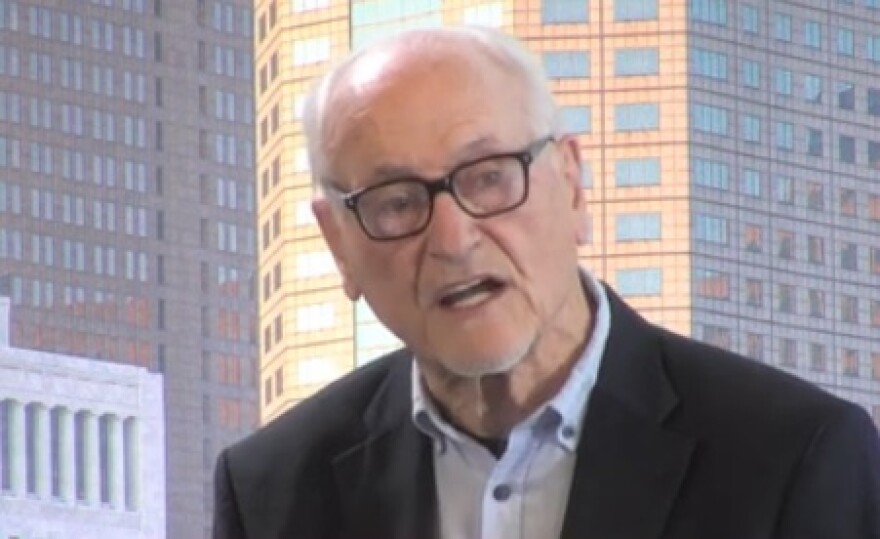When Dick Celeste became Ohio's governor in 1983, he inherited a significant deficit - and a temporary 50% increase in the state income tax - from his Republican predecessors.
With the help of a Democratic-controlled legislature he passed an additional 40% increase to erase the deficit and create much needed funding for education and social services up to national levels. A subsequent repeal effort was unsuccessful, but lawmakers have rolled back the state income tax in every budget for the past two decades - and are considering another reduction this year. Speaking at the Columbus Metropolitan Club this week, Celeste says he thinks that's a bad move - for Ohioans and for future politicians.
“I think it is ill considered. I think will come back to haunt future governors as they try to deal with the challenges of growth, change and public infrastructure in this state.”
But Celeste says much of the current political climate is new - and dangerous. And the electorate is changing. Celeste says politicians need to reevaluate their relationship with voters.
"Red and blue are not really very descriptive of politics today. In the state of Ohio it's like 937,000 to 820,000. There are 6-point-2 million unaffiliated voters. That's true across the country; the biggest political party in this country are the people who will not chose a political party. And so any successful candidate has to think about 'how do I reach not just my partisans, but how do I reach the folks who want to vote, but are not identifying with a party?'"
Celeste calls dark money and gerrymandering the divisive "diseases" of modern politics that are fueling mistrust among voters.
"Every congressional district in the state of Ohio should be competitive - that's not the way it's been drawn. And that's true in the state legislature, and that's the way it is across the country. And that is wrong. The more gerrymandered a place is, the more you invite extremes to be candidates....
I think dark money is also a disease. It invites people to push money into races, and not have my name on it. Every political contribution should have a name associated with it. Don't hide it; that's not free speech. That's not free speech."
Asked if he had any regrets during his tenure, Celeste says he wishes he had done more to address the inequities of the death penalty in Ohio. At the end of his second term in Ohio, Celeste commuted the sentences of 8 inmates on death row to life without parole. In retrospect, he says he wishes he had cleared death row, because of the stark differences in the way sentences were handed out in Ohio and other states.
"We had 106 people on death row. The African-American population in the state was 12% - 40% of the people on death row were African-American. We have 88 counties in Ohio; over 20% percent of people on Death Row came from one county - Hamilton County. Not Cuyahoga Copunty, not Franklin County - Hamilton County. 'Cause that's where they were prosecuted, and they went for the death penalty. It was terribly uneven.
After leaving the governor's mansion, Celeste served as U.S. ambassador to India and led Colorado College for 10 years. In 2020 he and another former governor, Bob Taft, were appointed to establish and lead a task force to help expand COVID-19 testing in Ohio during the pandemic.
To hear more from Celeste - including his thoughts on raising the threshhold for passing constitutional amendments, and his comparison of Silicon Valley Bank's recent collapse to the Home State Bank failure he dealt with in 1985 - tune in to the broadcast of this Columbus Metropolitan Club forum, Saturday morning at 7, or check it out on the WCBE Podcast Experience.



